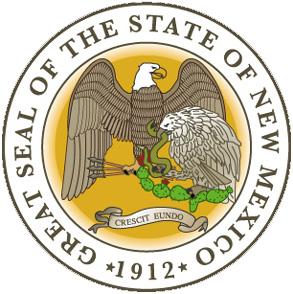Part 2 of 2 Parts (Please read Part 1 first)
A temporary storage site was proposed for Bull Creek, Utah around the year 2000. In a lawsuit filed in 2003, Utah argued that when the Yucca Mountain site was selected, the authority of the NRC to designate temporary storage sites was ended under the terms of the NWPA. The Court of Appeals for the District of Columbia was sympathetic to the environmental and safety concerns of Utah, but it confirmed that the federal government has the final say about nuclear storage facility siting.
After the first Bull Creek decision, the Court of Appeals in the 10th Circuit issued an opinion in the Skull Valley Band of Goshute Indians v. Nielson case that also involved the Bull Creek site. Utah argued that the state’s constitution clearly stated that any nuclear facility should be regulated by the Utah Department of Environmental Quality. In addition, state law called for the counties to have oversite of facilities and rail transportation of nuclear waste. The decision issue by the Court of Appeals in the 10th Circuit affirmed the first Bull bCreek decision that the federal government had the final word with respect to the siting of nuclear waste facilities.
The decision read, “In holding the Utah statutes preempted, we do not denigrate the serious concerns of Utah’s citizens and lawmakers regarding spent nuclear fuel, a matter with presents complex technological, economic and political challenges to those seeking effective solutions. However, in the matter of nuclear safety, Congress has determined that it is the federal government, not the states that must address the problem.”
The N.M. A.G. said that the state would have “some recourse” if NRC regulations were violated at the facility or the facility failed after it began operation. While the site is in operation, Holtec would have the sole responsibility for the dry casks which would store the spent nuclear fuel thirty feet underground. While there is no NRC regulation or judicial precedent with respect to the possible storage of spent nuclear fuel in dry casks past their licensed life span, Holtec alone is responsible for safe operation of the site. NRC regulations do specifically require that a decommissioning plan and funding be part of license requirements for any temporary storage site. This would appear to prevent spent nuclear fuel from being stored at a
site permanently.
The A.G. wrote, “Because interim storage facilities are not intended to be permanent repositories for nuclear waste, NRC regulations provide that all applications for a license to operate an interim storage facility must include a plan for the future decommissioning.”
During the licensed period, the licensee has to periodically update decommissioning plans and estimates of cost. The licensee of a site must submit final decommissioning plans when a temporary site ends operations. The A.G. wrote, “The NRC’s licensing and regulatory requirements should provide some assurance that Holtec would be unable to simply abandon the site, given the that the NRC requires financial assurances to cover the cost of decommissioning the site.” Unfortunately, there is no recourse for the state if the federal government fails to create a permanent repository for spent nuclear fuel.
The A.G. wrote “The simple answer is that federal law does not appear to afford the state any legal recourse. And, as demonstrated by the fact that interim storage facilities are currently licensed and operated in a majority of states, the absence of a permanent facility does not appear to preclude the NRC from issuing licenses for interim storage facilities.” Regardless of how long it takes for the federal government to create a permanent repository, the state of N.M. has no power to speed up the process.
